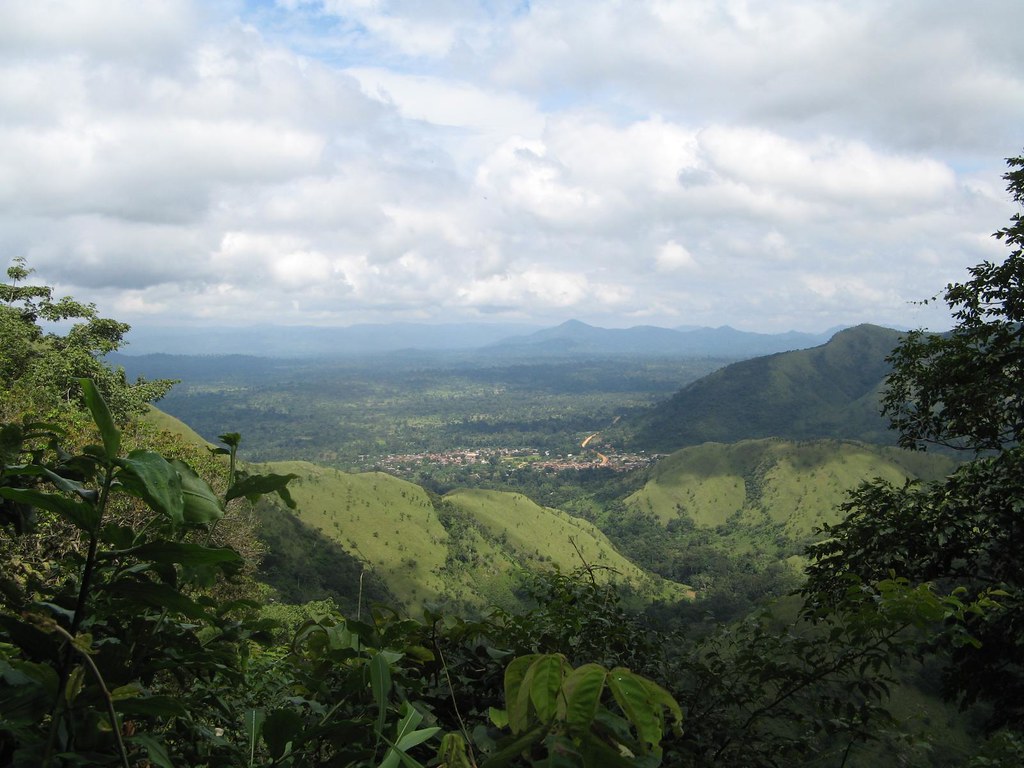
The carving of the Volta region into two was met with resistance Felix Krohn/Flickr, CC BY-NC-SAGovernments often pursue strategies to establish regional centres of power in an effort to decentralise and bring the state closer to the governed.
This is true in Ghana. The country has undergone a number of regional reorganisations. These happened in 1956, 1957 and 1983. Another took place in 2018 which led to the creation of six more administrative regions. This initiative was preceded by public upheavals, civil unrest, and a move by a segment of the people to declare a part of Ghana as an independent state.
Ghana now has a total number of 16 regions. The designation of an area as a region signals that the allocation of state resources will increase. New structures include the creation of a coordinating council to administer the region. There is also the siting of a larger police command and a regional hospital.
I conducted research to examine the implications of the reorganisation on socio-economic development among the people of Oti Region in Ghana. The Oti Region was carved out from the Volta Region in 2018.
I selected the Oti Region because it’s relatively new.
The main motive of the study was to understand the expectations and experience of the people of Oti in relation to the regional reorganisation. In particular, I wanted to establish if there was a link between the regional reorganisation and socio-economic development.
My findings showed that people’s views varied on whether regionalisation can help development in the local communities. Some were very supportive; others were not.
Some, mostly from the Volta region, said they believed it was politically motivated. Others acknowledged that it could help development in the area.
I concluded from my research that the history of creating new administrative regions in Ghana – and the lack of development that followed – has led to people having doubts about the need to create new ones. The study recommended that in future the government should ensure that resources and development are fairly distributed across all regions.
History of regional reorganisation
Pre-independence Ghana had only three regions — the Gold Coast Colony, the Ashanti Territory and the Northern Province. After a referendum in 1956 the Trans-Volta Togoland was added to the three regions.
In 1957 the Colony of Gold Coast was reorganised into Eastern, Western and Volta regions. Then the Brong Ahafo Region was carved out from the Ashanti Territory, the Upper Region was carved out from the Northern Territory, the Central Region carved out from the Western Region and Greater Accra carved out from the Eastern Region.
Finally, the Upper Region was reorganised into the Upper East and Upper West Regions in 1983.
There were no further creations until December 28, 2018 when six additional administrative regions were created, bringing the total to 16.
The prudence of creating regions has been debated by different scholars. Those in favour argue that regional administrations can meet the specific needs of a growing population, protect minority ethnic or group interests and ensure development that can tangibly be felt within a geographical polity.
Mixed reactions
I selected 35 people between the ages 40 and 50 years in communities in the Oti Region. They were interviewed based on their willingness and availability. Twenty-five were men, and 10 women. Their current and former occupations included education, dressmaking, farming, petty trading, fish mongering, driving, nursing, carpentry and painting.
Those in favour of the decision to create the Oti Region said they believed the decision would minimise conflicts of interest between the governed and the government. They said they believed that when the government moved closer to the governed, their needs become closer to the government.
A cross-section of the participants said the creation of the new region would mean increased funding for the area. This is because the geographical demarcations of Oti Region have absorbed other areas. The funding set aside by these could therefore be channelled into developing the Oti Region.
The benefits of the increased funding include regional hospitals, police stations and markets.
People felt that quality education, rapid infrastructure development and the rich culture of the people of Oti could soon be used to the advantage of the people in the region.
Some respondents were opposed to the decision.
They argued that the creation of the new regions was politically
motivated. They pointed to the fact that there had been very little development in the Upper East and West regions, which had some of the poorest in Ghana.
Others pointed out that Oti Region did not have any resources. This is contrary to the findings of an analysis done by the government as part of its argument to create the region. It concluded that there was substantial demand in the proposed areas.
Lastly, respondents said the appointment of administrative heads by the central government was inconvenient: it curtailed their independence and slowed local development.
Conclusion
It is clear that the way in which regionalisation has been carried out in Ghana has led to people having doubts about the need to create new regions.
The study recommends that government should ensure that resources and development are fairly distributed across all regions to give people hope.
Local government heads should be elected by residents of the administrative space rather than appointed by the president, to ensure effective local accountability.

Anthony Nkrumah Agyabeng does not work for, consult, own shares in or receive funding from any company or organisation that would benefit from this article, and has disclosed no relevant affiliations beyond their academic appointment.
-------------------------------
By: Anthony Nkrumah Agyabeng, Lecturer, Business Department, University of Professional Studies Accra
Title: Are new centres of power a good idea? People in Ghana's Oti region are divided on the issue
Sourced From: theconversation.com/are-new-centres-of-power-a-good-idea-people-in-ghanas-oti-region-are-divided-on-the-issue-164002
Published Date: Wed, 14 Jul 2021 14:19:24 +0000
Read More
Did you miss our previous article...
https://badpoliticians.com/world-politics/south-africas-chaos-reveals-the-failures-of-the-democracy-building-project
 UK PoliticsWorld PoliticsVideosPrivacy PolicyTerms And Conditions
UK PoliticsWorld PoliticsVideosPrivacy PolicyTerms And Conditions
